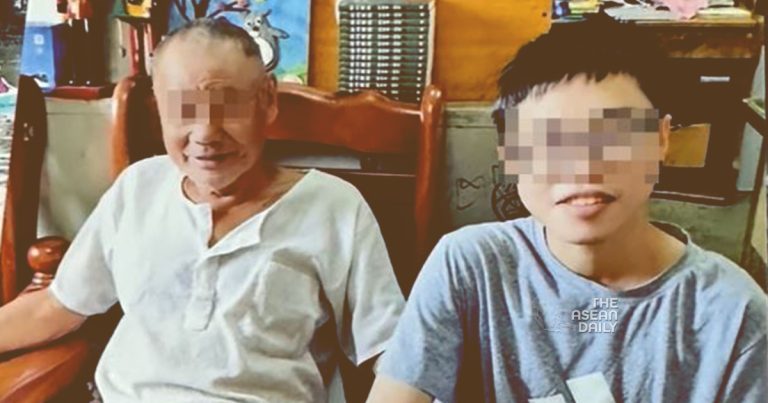21-6-2023 (TAIPEI) Prosecutors in Taiwan have concluded their investigations into the perplexing death of a Taiwanese teenager known as the ” $500 million high schooler” by local media. The 18-year-old, identified as Lai, tragically fell to his death from a 10th-floor apartment in Taichung on May 4, merely two hours after legally marrying another man.
The apartment in Taichung belonged to a man identified only by the surname Hsia, who worked as an escrow agent. Lai and Hsia had just registered their marriage prior to the tragic incident.
Following Lai’s death, his mother held a press conference where she claimed that her son had inherited a substantial property portfolio worth around NT$500 million (S$21.7 million). She accused Hsia of murdering her son to gain control over the valuable real estate assets.
After more than a month of investigations involving multiple agencies, Taichung’s district prosecutors announced on Wednesday that there was insufficient evidence to link Hsia or his father, who was reportedly managing the Lai family’s portfolio, to the teenager’s death.
However, Hsia will face charges related to forging the documents that legalized their marriage. Prosecutors suspect that Hsia proposed a sham marriage with ulterior motives to gain access to Lai’s inheritance. Taiwanese daily China Times, citing the indictment report, revealed that Hsia had previously been suspected of homicide but was released on bail of NT$300,000.
Last week, prosecutors stated that a comprehensive autopsy indicated no foul play in Lai’s fall, as evidenced by the injuries found on his body. On Wednesday, they added that the high school student was “emotionally distressed” prior to his death.
According to the indictment report, prosecutors discovered that Lai had confided in Hsia about his uncertainties in managing the inherited properties. Feeling pressure from his biological father’s first wife and their children, Lai agreed to the same-sex marriage with Hsia.
Local media has questioned the legitimacy of the same-sex marriage, despite it being legally recognized in Taiwan. Witnesses, including Lai’s former teachers, claimed that he had sought counseling for his unrequited feelings towards a female classmate. Lai’s mother also denied that her son was gay.
Hsia is suspected of arranging witnesses for the marriage who had no familial or friendly connection to either himself or Lai. He is also accused of falsifying statements to indicate that both sets of parents were aware of the marriage.
If the marriage is proven to be a sham, Hsia will lose any claim to Lai’s inheritance, which he may have asserted as a legally wedded partner.
Taichung prosecutors revealed that Hsia had randomly approached people for help in finding the two required witnesses for their marriage, raising suspicions about his intentions. Examination of their phone records indicated minimal contact between the two before their marriage.
Witnesses from a convenience store near the household registration office where the marriage took place stated that Hsia sought their assistance, claiming that their families were opposed to their union.
Hsia reportedly told investigators that by registering their marriage, he was assisting Lai in accessing the inheritance left by his father. The patriarch of the Lai family had stated that he would pass on his portfolio to his first son to get married.
Michael Hsu, the lawyer representing Lai’s mother, Chen, expressed her “regret” at the prosecutors’ decision not to pursue homicide charges. She emphasized the need to seek justice for her son in an interview with Taiwan’s Central News Agency.
The issue of the Lai family’s inheritance remains unresolved. Chen’s claims to the real estate portfolio may be limited due to her Chinese nationality. Speculations by Taiwanese lawyers suggest that she may only be entitled to NT$2 million from the portfolio, which comprises over 30 properties.
The intriguing background of Lai’s family has also attracted media attention. Notably, his biological relationship with his father, who was previously documented as his grandfather, has raised questions. According to Taiwan’s United Daily News, Lai’s mother arrived in Taiwan in 2002 for an arranged marriage with a disabled man. After his passing, she had a child with her father-in-law, who later legally “adopted” his biological son to facilitate his inheritance of the family’s properties.




